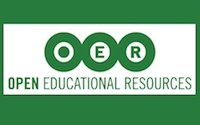
Designing and Implementing Web-based Scaffolding Tools for Technology-enhanced Socioscientific Inquiry
This study explores how web-based scaffolding tools provide instructional support while implementing a socio-scientific inquiry (SSI) unit in a science classroom. This case study focused on how students used web-based scaffolding tools during SSI activities, and how students perceived the SSI unit and the scaffolding tools embedded in the SSI activities. A web-based SSI unit […]















